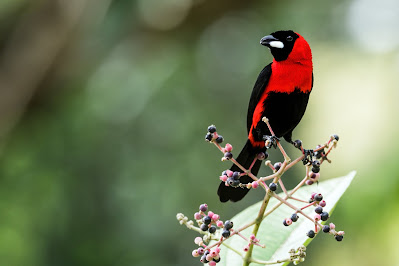This week in birds - #447
A roundup of the week's news of birds and the environment:
The Barn Swallows are nesting.
*~*~*~*
President Biden has pledged to slash the country's greenhouse gas emissions by one-half by the end of the decade. The action is part of an aggressive push to combat climate change and to persuade other countries around the world to take similar steps.
*~*~*~*
Hope is the thing with feathers as Emily Dickinson once told us. It is also an essential element in saving the things with feathers, as well as the rest of Nature. Hope and conservation go hand in hand.
*~*~*~*
The Deepwater Horizon disaster in the Gulf happened eleven years ago and its effects are still being felt. We have learned a lot about the ecology of the Gulf and about the risks of deep water drilling in the past eleven years, but are we now any safer from another such disaster?
*~*~*~*
And what about the animals that were rescued from that disaster eleven years ago? Many of the birds were taken to Georgia to avoid the ongoing spill and to be rehabilitated and now one of those birds, a Brown Pelican, has returned home. Over a decade after its traumatic ordeal, the bird made the 700-mile flight back to Louisiana where it was photographed in March.
*~*~*~*
Achieving the goal for greenhouse gas emissions that has been set by President Biden will require eliminating the use of energy produced by burning coal.
*~*~*~*
An important part of reducing greenhouse gas emissions can be the actions taken by individuals. Although our individual actions may seem insignificant, they do add up and they do have an effect. One important action individuals can take is to give up their manicured lawns and opt to grow native plants instead.
*~*~*~*
Another goal to help combat global warming is the 30x30 plan. The idea here is to protect 30% of Earth's land and water by 2030. This would include not only public lands but private as well.
*~*~*~*
In Monmouth County, New Jersey, authorities took the occasion of Earth Day this week to open a fish ladder that is meant to facilitate the migration of herring species that live in salt water but do their spawning in fresh water. The ladder will aid them in getting from the sea to the fresh water of Wreck Pond where they spawn.
*~*~*~*
The narwhal's tusks are a bit like tree rings in that they provide a record of the animal's diet. Recent analyses of the tusks are showing an accumulation of mercury - not a good thing - and a change in diet as sea ice retreats.
*~*~*~*
What passes for "normal temperature range" is changing as the global climate warms and NOAA is making adjustments to reflect these changes. The last time the agency had updated its Normals was in 2011.
*~*~*~*
Masked Crimson Tanager in Ecuador.
Male birds are generally brilliantly colored and the brilliance of their feathers is supposed to reflect their health and their worthiness as a mate, but male tanagers have a trick that allows them to appear to be more attractively colored than they truly are.
*~*~*~*
The tyrannosaurus rex has long been thought of as a solitary hunter but recent discoveries at Grand Staircase-Escalante National Monument reveal a different story. It seems likely that the giant dinosaurs hunted in packs. Imagine a pack of tyrannosaurs!
*~*~*~*
The Florida reef gecko is the most endangered reptile species in the United States. Its continued existence is threatened by rises in the sea level.
*~*~*~*
You can chalk this one up to karma: A suspected poacher in South Africa was trampled to death by a herd of elephants last week.
*~*~*~*
New projections show that Lake Mead on the Colorado River could sink to a new record low later this year as a result of the continuing megadrought in the region.
*~*~*~*
Earth has amazing tools to protect itself. As we attempt to reverse the effects of climate change, our greatest ally in the effort is the planet itself.
*~*~*~*
This just boggles my mind and hurts my heart: In Idaho, a Republican-dominated state Senate committee on Tuesday approved legislation allowing the state to hire private contractors to kill about 90% of the wolves roaming the state. It is hard to imagine any action that could be any more wrongheaded.
*~*~*~*
In spite of border walls and other depredations along our southern border, recent sightings of jaguars on both sides of the Arizona-Mexico border are raising the hopes of conservationists for the recovery of the species.
*~*~*~*
Margaret Renkl reminds us that we are creatures of Nature, born to be wild, and it is never too late to become a naturalist.



Comments
Post a Comment